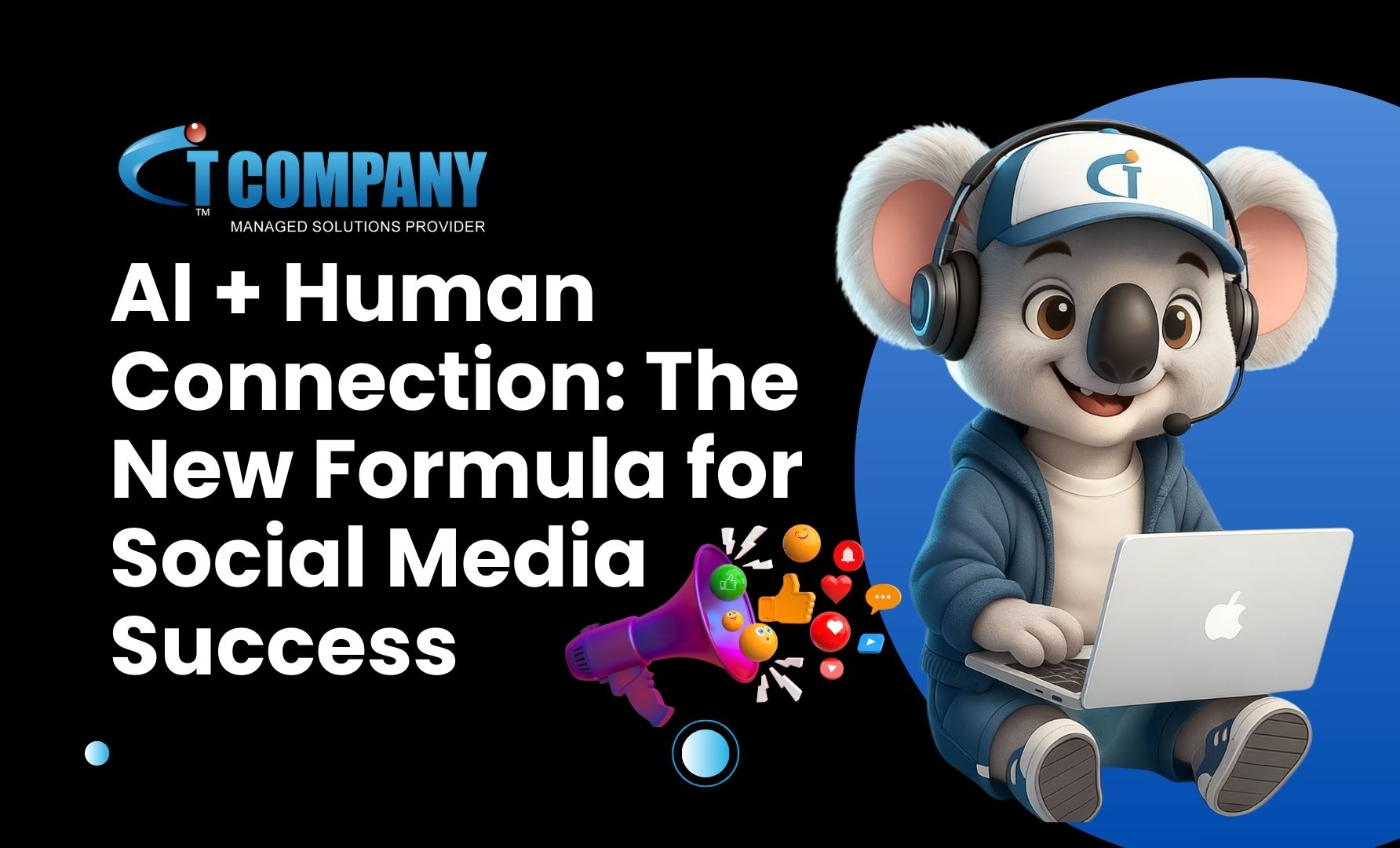Introduction: Social Media Management Has Evolved Has Your Business?
For small businesses, social media has shifted from a “nice-to-have” to a mission-critical growth channel. Today’s customers expect fast responses, consistent posting, valuable content, and true brand personality. But many small businesses struggle to keep up with the fast-changing demands of social media management, leading to frustration, burnout, and low ROI. The good news? There’s a modern solution: AI-enhanced social media management combined with genuine human connection. This guide will show you how small businesses can streamline social media tasks, connect authentically with customers, and achieve measurable ROI without needing a full in-house marketing department.

The New Reality of Social Media Management for Small Businesses
Small business owners face unique challenges:
1. Limited Time & Resources
Most owners juggle operations, sales, customer service, and marketing. Consistency becomes nearly impossible.
2. Content Creation Burnout
Coming up with fresh, engaging ideas constantly can drain creativity fast.
3. Constant Algorithm Updates
Strategies that worked six months ago may no longer deliver results today.
4. Platform Overload
Facebook, Instagram, TikTok, LinkedIn, Pinterest, YouTube… Where should you focus?
5. Difficulty Measuring ROI
Many businesses struggle to connect social media activity to leads and real sales. The solution? Strategic, efficient, data-driven social media management powered by AI and guided by real human interaction.
How AI Is Transforming Small Business Social Media Management
AI is no longer a futuristic concept reserved for big brands. It’s now accessible, affordable, and incredibly useful for small businesses. Here’s how AI transforms everyday social media management:
1. AI Content Creation & Brainstorming
AI tools help small businesses create high-quality content fast:
- Caption suggestions
- Blog-to-post repurposing
- Short-form video scripts
- Carousel concepts
- Hashtag recommendations
This removes creative roadblocks and speeds up production.
2. Smarter Scheduling & Posting
AI-powered schedulers analyze engagement data and determine:
- The best posting times
- The best days for each platform
- The best content type for your audience
This boosts visibility and engagement naturally.
3. AI Audience Insights & Analytics
AI tools pull data from thousands of interactions to reveal:
- Your top-performing content
- Peak engagement times
- Demographic breakdown
- Behavior trends
- Competitor analysis
This helps small businesses make strategic, data-driven decisions.
4. AI-Powered Social Listening
Know what people are saying about your brand, competitors, and industry. AI monitoring tools track:
- Mentions
- Hashtags
- Sentiment (positive/neutral/negative)
- Trending keywords
- Customer concerns
This allows for proactive, not reactive, reputation management.
5. AI-Assisted Engagement & Chatbots
While humans should handle deep engagement, AI helps with:
- Initial responses
- FAQ handling
- Appointment reminders
- Order follow-ups
- Customer inquiry routing
This saves time while maintaining responsiveness.

The Human Side: Why Authentic Connection Still Matters Most
While AI improves efficiency, real human connection is still the true competitive advantage for small businesses. Customers prefer brands that feel:
- Personal
- Honest
- Relatable
- Local
- Values-driven
AI can support this but it can’t replace genuine interaction.
Human-Centered Strategies That Boost Engagement
- Share stories about your brand journey
- Highlight team members
- Post behind-the-scenes videos
- Go live with Q&As
- Encourage user-generated content
- Respond thoughtfully, not generically
AI can automate tasks. Humans build trust. The strongest social media strategies blend both.
How to Measure ROI in Small Business Social Media Management
If you aren’t measuring, you’re guessing. Here are the most important ROI metrics:
1. Website Traffic
Track how many users visit your site from social posts.
2. Conversions & Sales
Monitor purchases, bookings, inquiries, or downloads.
3. Lead Generation
Newsletter signups, form submissions, lead magnets, etc.
4. Customer Acquisition Cost (CAC)
Especially for paid ads.
5. Customer Lifetime Value (CLV)
Engaged customers stay longer & spend more.
6. Engagement Quality
Meaningful interactions > vanity likes.
7. Brand Sentiment
AI listening tools help track public perception. With clear goals and tracking systems, your social media becomes a predictable growth engine not a guessing game.
How Small Businesses Can Future-Proof Their Social Media Strategy
Embrace AI for efficiency
Use AI to automate everything that doesn’t require a human touch.
Stay adaptable
Social platforms evolve rapidly flexibility is essential.
Focus on the right platforms
Show up where YOUR audience spends time.
Keep it human
Authenticity will always outperform automation.
Track and optimize
Regularly analyze results and refine your strategy.

Conclusion
Small business social media management is no longer about posting endlessly or chasing trends. The future belongs to brands that combine AI-enabled efficiency with authentic, human-centered communication. By embracing this balanced approach, your small business can:
- Save time
- Improve consistency
- Increase visibility
- Build stronger customer relationships
- Generate measurable ROI
Want help implementing a smarter, future-proof social media management strategy? We specialize in AI-powered social media management designed specifically for small businesses. Contact us for a personalized consultation today.
FAQs
What is social media management for small businesses?
It includes strategy, content creation, posting, engagement, analytics, and brand reputation management across social platforms.
How can AI help my small business manage social media?
AI supports content creation, scheduling, analytics, trend discovery, and customer responses helping you save time and reduce workload.
Which platforms should my small business focus on?
Choose platforms where your ideal customers spend their time often Facebook, Instagram, TikTok, or LinkedIn depending on your industry.

